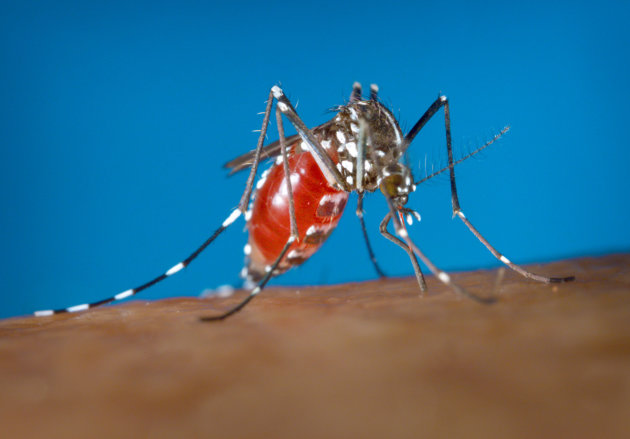
As if travelers didn’t have enough to worry about with mosquitos spreading diseases like Dengue, Chikungunya, and West Nile, now there’s a new virus threatening our health: Zika virus.
Just two days after the CDC issued a travel alert advising pregnant women to consider avoiding areas including Brazil, the Caribbean, and Puerto Rico where this once rare virus is now rapidly spreading, the first U.S. case of a baby born with Zika-related microcephaly has been confirmed in Hawaii. It is believed that the baby’s mother was infected while pregnant in Brazil last year.
Mounting evidence has linked Zika infections in pregnant women to the birth defect microcephaly, a potentially deadly underdevelopment of a baby’s brain, also resulting in abnormally small head size. Richard Kuhn, head of Biological Sciences at Purdue University tells Yahoo Travel that “Once a pregnant woman is infected, the placenta can also become infected, causing an infection in the brain of the fetus. It is still unclear whether there is a particular trimester during which fetuses are the most vulnerable,” says Kuhn.
Anyone who has not previously had Zika and is traveling in an area where Zika is an issue could be at risk. Since there is currently no vaccine or cure, the best way to stay healthy is to avoid getting mosquito bites in the first place. According to the CDC, mosquito repellants containing DEET, picaridin, IR3535, and oil of lemon eucalyptus and para-methane-diol offer protection and are safe for pregnant women.
However, for pregnant women (or others) who are hesitant to use harsh chemicals like DEET, here are some tips: If you do use repellant, wash it off as soon as possible and don’t sleep with the chemicals on your skin. Wearing long sleeves and pants and then treating these clothes with DEET can also be effective (but obviously does not protect exposed skin on the hands, feet, face, and neck). Repellents that contain natural ingredients like citrus, citronella and chrysanthemum are also safe, according to FitPregnancy.com, however they are not as effective as the chemical alternatives.
The most common symptoms of Zika, a flavivirus related to Dengue, Yellow Fever, and West Nile, according to Richard Kuhn, Head of Biological Sciences at Purdue University, include flu-like symptoms (fever, body aches, headache), as well as rash, joint pain, and conjunctivitis.
Zika virus was originally discovered in Uganda in 1947, and was named after a forest there. It remained an obscure disease found only in Africa and Asia until a small outbreak in 2007 in Micronesia.
But in May of last year, perhaps due to Africans traveling to Brazil for the world cup, according to some experts, the virus appeared and soon exploded across South American country. Now the Brazilian Ministry of Health estimates that up to 1.5 million people may be infected.
Amid the outbreak, Brazilian health officials noticed a spike in microcephaly, a potentially deadly form of abnormal brain development in newborns. Experts there say there is strong evidence of a connection to mothers infected with Zika. In fact, the Ministry has taken the unprecedented step of advising women in the northeast region of the country to avoid getting pregnant for the foreseeable future due to the risk.
In light of the explosive spread of the virus, the CDC has warned tourists and discouraged pregnant women about traveling to countries concern including: Brazil, Colombia, El Salvador, French Guiana, Guatemala, Haiti, Honduras, Martinique, Mexico, Panama, Paraguay, Suriname, Venezuela, and Puerto Rico.
Though the kind of mosquitos that transmit Zika are found in the southern U.S., according to Kuhn it is unlikely that Zika will become a native problem here. Still, “You might see some people bring some imported Zika back to the U.S.,” says Kuhn, which is what is believed to have happened to the baby in Hawaii.
No comments:
Post a Comment